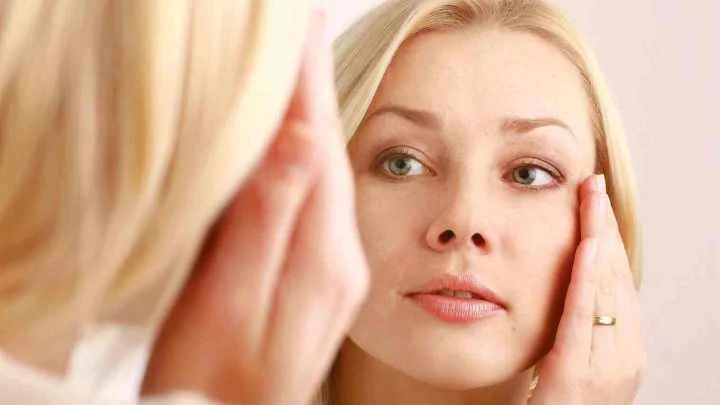Every individual craves to know the secret for eternal youth. And in search to find this secret, many people have expanded their energy and money on buying the most expensive anti-aging creams and potions. However, it is important to understand that the aging of the face is not just skin deep. Let us take you through a journey of the skin aging and look into how various treatments and therapies help in anti-aging of the face.
The face has many layers from the skin to bone, and the changes of aging affect each one of these layers. These layers consist of skin, dermis, superficial fat, muscle, SMAS, deep fat, and bone. So, single anti-aging cream or treatment does not fit all skin concerns of facial aging.
Aging of the skin epidermis:
The outermost layer of the skin is epidermis. This layer has live cells at the bottom, and as these cells move up, they become compressed into keratin. The skin aging at this layer starts as early as 25, with a slow production of the epidermal cell due to less collagen. This, in turn, leads to the appearance of dull skin and pigment spots. Anti-aging creams containing glycolic acid and retinol helps to accelerate skin rejuvenation whereas, vitamin C and ferulic acid help to dilute the pigmentation over the skin. Chemical peels and Microdermabrasion help to exfoliate the dead layers of the skin, and enhance the process of skin rejuvenation. Thus, the treatment helps to naturally anti-age the skin.
Aging at the dermis:
The dermis forms the support for the epidermis and contains blood vessels, sweat, oil glands, collagen, and hyaluronic acid. These help the skin to stay smooth, supple and gives texture to the skin. Aging in the dermis is mainly due to sun exposure that causes loss of the collagen and depletion of hyaluronic acid leading to increased appearance of open pores and fine lines. Using a broad spectrum sunscreen, along with vitamin A cream helps to rejuvenate the collagen in this layer. Treatments such as dermaroller, fractional laser and fractional microneedle radiofrequency help to create micro-injury to the fibroblasts, helping regeneration of collagen in this layer. Hyaluronic acid based skin booster treatments can also benefit patients looking for anti-aging treatments.
Aging at the Superficial fat pads:
The superficial fat pads contribute to the contours of the face. A youthful face has soft and rounded convex contours described as the Ogee curves, and as we lose fat, the contours become flat and can become concave or hollow. These contribute to the formation of facial shadow areas, under the eyes and around the corners of the lips. These are best treated by Vampire Facelift in the earlier stages and dermal fillers in the later stages.
Aging at the muscle layer:
The muscles of the face contribute to the expressions of the face. They have a unique feature of being attached to the overlying skin. With repeated movements of facial expressions, the skin starts to crease and develop lines even when the skin is not in motion. These dynamic muscles eventually contribute to the formation of frown lines, crow's feet, and worry lines. A simple and effective treatment to help with these lines is the use of Anti-wrinkle injections. These injections help to relax the muscle so the lines disappear. Some patients are averse to Injectable Treatments. In that case, TIXEL and Fractional Microneedle RF treatments help to treat lines in such patients.
Aging at SMAS
The Superficial Musculoaponeurotic System or SMAS is a layer of thick fibrous tissue which separates the superficial and deep fat compartments of the face. It extends from the cheekbones and covers the cheeks, blends into the temples as the temporal fascia and over the neck into the platysma. The function of the SMAS is to connect the muscles of the face to the skin and amplify the muscular action. Loosening of the SMAS causes the facial fat pads to descend, especially in the lower third of the face. During facelift surgery, the SMAS is pulled up to reposition in the lower half of face. In Cosmetic Dermatology, Radiofrequency and Ultrasound based technologies help to target this layer to tighten the skin by Non-surgical Face Lift techniques. Thread lifts help to stimulate the fibroblasts and anchor the SMAS so there is an initial mechanical as well as a physiological lift later.
Aging at Deep Fat pads
The deep fat pads are present at the cheek and temporal areas. Loss of fat in these areas causes hollow facial appearance. Treatment done with the use of dermal fillers helps to restore the lost volume. Improvement in the mid-cheek and lateral cheek areas lead to an improvement in the more dependent chin and jowl area, and must always be considered before any modification in the lower third area of the face.
Aging at the bone and teeth
We cannot neglect the effect of the bony framework of the face on skin ageing. With age, there is resorption of the bones around the eyes, leading to sunken eyes. The dental bone structure also contributes to facial aging. When there is any dental loss, the area around the mouth loses support. The most important treatment here is good dietary supplementation of calcium and vitamin D, especially in perimenopausal women. In this case, treatment can be only performed with supplements to stimulate bone formation and dermal fillers to add volume to the skin.
The aging of the face has to be considered as a whole, and treatment of one layer should not preclude the examination and treatment of the others. Instead, a treatment plan which observes and takes into consideration all the effects of aging should be charted by the dermatologist and the patient.


